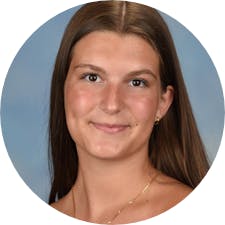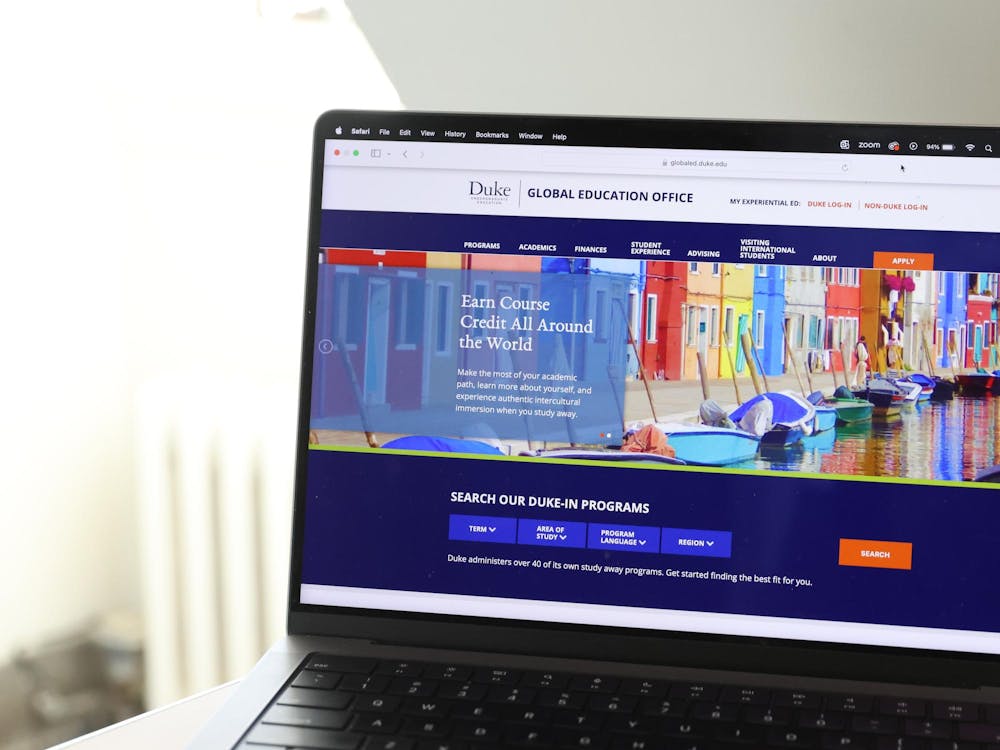In response to student frustrations, Duke’s Global Education Office eliminated the lottery for fall 2025 study away programs and has moved to replace it with a “best-fit” rubric-based process.
The new system aims to provide students with more agency in selecting a program and take major-based limitations into consideration.
Students will be asked to complete an application worksheet that aims to holistically assess their study abroad needs — including housing, cost of living, on-site support and identity — with the goal of matching them with a suitable program. Certain study away programs are better suited to particular academic disciplines, so those students with “best-fit” majors will be given preference when they apply.
Applicants will submit the rubric worksheet for three study abroad options based on their degree program, language experience, personal statement and rank choice.
Fall 2025 study away worksheets open Nov. 1 with an early consideration deadline of Dec. 1. Those who submit worksheets by Dec. 1 will receive their decision Jan. 8.
Per a Sept. 27 email to The Chronicle from GEO Associate Director Amy Bowes, students interested in non-Duke programs must also attend a mandatory Duke-approved workshop before February 2025.
In addition to the modified application process, GEO also approved 271 new courses for the fall 2025 cycle, including courses in “more restrictive majors like engineering and computer science.”
The controversial lottery system was created last year in an effort to address issues in registration, housing, health and safety after 56% of Duke students studying abroad in fall 2023 participated in just three programs: IES Madrid, DIS Copenhagen and NYU Florence.
“GEO cares a lot about Duke students, and we heard from parents, students and administrators how the lottery process negatively impacted them,” Bowes wrote in the email.
Students were forced to apply on an accelerated timeline in order to secure a spot in the lottery for those programs.
Junior Ryan Silver recalled how fall 2024 study away applicants were annoyed by the lottery system, noting that under the previous format, it was “straightforward to get wherever you wanted to go.”
Though, as an economics and statistics major, he found it easy to find a program for study abroad that would fulfill his requirements.
“Virtually every school in Europe has econ[onomics programs], so it wasn’t a big deal for me at all,” Silver said.
But for junior Carly Silverstein, a neuroscience major, DIS Copenhagen was the only abroad program that she felt suited her academic needs. She shared that many students were frustrated when they did not get into their preferred program.
“People were mad,” she said. “It kind of became a competitive thing when it shouldn’t have been.”
Silverstein explained that students were allowed to apply to two additional programs last year to account for possible limitations from the 50-person cap. However, she believes the GEO did not anticipate the number of students that would apply to other programs, causing them to reach the 50-person maximum and become lottery programs as well.
However, Silver highlighted that some students were able to swap their lottery spots with other students.
Sophomore Josh Coutu attended a GEO information session and is more optimistic about his chance to study abroad under the new application format.
As a mechanical engineer, Coutu expressed that his options are limited to a few programs including Madrid, Australia and Edinburgh. As a result, he will receive “higher priority” for a spot in those programs.
He believes that the new application process “encourages people to spend more time on their applications” and is “a little bit more fair.”
Get The Chronicle straight to your inbox
Sign up for our weekly newsletter. Cancel at any time.

Michelle Voicu is a Trinity sophomore and an associate news editor for the news department.

